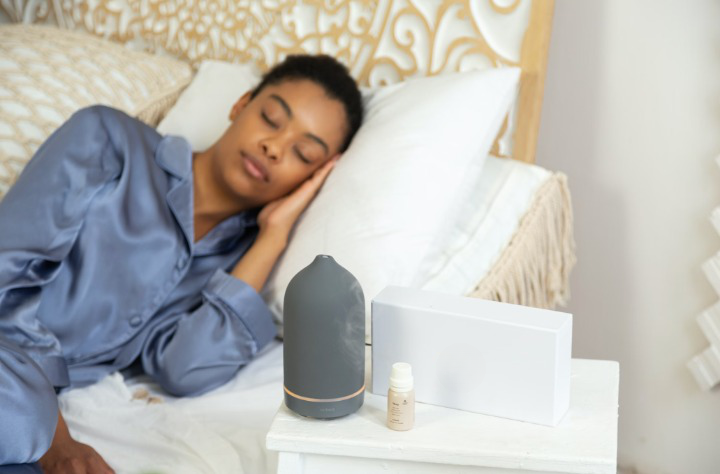Why Am I Still Tired After 8 Hours of Sleep? Here's the Answer


The Main Point:
Feeling tired when waking up, even after 8 hours of sleep? Unfortunately, this is a common issue in America and around the world. While it may seem a bit counterintuitive, getting a full eight hours of sleep doesn't necessarily mean you will always wake up feeling refreshed the next day. Things like inadequate sleep, sleep disorders such as obstructive sleep apnea, and even simple lifestyle choices can contribute to excessive daytime sleepiness.
One often-overlooked factor is sleep hygiene, which includes practices and habits that contribute to better sleep quality; by understanding and addressing these factors, you can improve your quality of sleep and stop feeling tired even after a full night's sleep of 8 hours or more.
Why Sleep Quality Matters for YOU:
Excessive daytime sleepiness isn't just an inconvenience; it can have long-term effects on your mental health, ability to think clearly, and even your overall well-being as a whole. Lower quality sleep can also lead to serious health conditions like heart disease and increase stress and anxiety levels. Getting a good night's sleep through better sleep hygiene and addressing underlying health conditions is one of the simplest and most beneficial ways of improving your quality of life.
Stat Line about Falling Asleep:
In a recent study, “55.5% of the participants reported poor sleep hygiene practices, and there were significant associations between poor sleep hygiene and the prevalence of sleep problems.” [Source]
Quotable:
The researchers noted, "Sleep problems including poor sleep, insomnia, and daytime sleepiness are regarded as important public health issues due to their growing frequency and potentially dangerous effects. These effects include physical and mental health impairments, decreased productivity, higher risk of accidents, greater use of medical services, and increased risk of psychiatric illnesses.”
But how...?
Substandard sleep and sleep deprivation can affect nearly every area of life. Improving your sleeping quality can involve multiple factors, such as maintaining a consistent sleep schedule, reducing exposure to the blue light (from electronic screens, such as TVs and cellphones) before bedtime, and addressing sleep disorders like obstructive sleep apnea. Lifestyle changes like avoiding caffeinated drinks close to bedtime and listening to relaxing music can also help you fall asleep faster and achieve deeper sleep.
And why...?
Poor quality of sleep can result from disruptions in sleep cycles in many forms: from health conditions such as restless leg syndrome to something as relatively simple as an uncomfortable mattress, pillow, or bed. Addressing these issues head-on can lead to more restorative sleep patterns and a reduction in symptoms like excessive daytime sleepiness.
Analogy:
You can sort of think of your body (and brain!) like a rechargeable battery. Even if you plug it in for 8 consecutive hours, if the charger is faulty (aka, less-than-ideal sleep), then the battery won't be fully charged (in other words, you'll still feel tired during the day). The key is to ensure that the charger is in good working condition (in the sense of improved sleep). Sometimes the charger just needs a quick fix, but other times you may need to replace the charger altogether.
One-Sentence Summary:
If you feel sleepy or are still tired after a full eight hours of sleep, then improving your sleep through better sleep hygiene and addressing underlying health conditions can significantly increase deep sleep, and, as a result, greatly reduce feelings of tiredness (replacing it with more energized days!).
Case in Point:
Another recent scientific study “reported significant associations between good sleep hygiene in the form of sleeping in a comfortable environment, limiting naps to 30 minutes, maintaining a consistent wake time, and reporting better sleep/efficiency in a sample of young adults.” It really can be just that simple for many individuals suffering for poor sleep quality at night.
For the skeptics:
While lifestyle changes and better sleep hygiene may not completely eliminate excessive daytime sleepiness, especially if medical conditions are involved, they can help you achieve adequate sleep quality and reduce symptoms.
What to do for Deep Sleep:
-
Consult your healthcare provider for a comprehensive sleep assessment. They may recommend sleep studies or lifestyle changes that can help you improve your sleep quality.
-
An easy way to get better, deeper sleep: using a higher quality mattress and pillow every night (we specialize in this, so we know what we're talking about!).
-
Find the nearest SLEEP365® store near you in sunny California to speak with one of our trained mattress and bedding specialists, who will be happy to help you find the perfect sleeping environment for you and your personal sleep preferences.
Next steps:
You can also visit our website to find a variety of resources designed to help you achieve better sleep. From articles on sleep hygiene to a curated collection of premium bedding, we have everything you need to start sleeping better — starting tonight.
Note: This article is for informational purposes only and is not intended to be medical advice or a replacement for the advice of a medical professional. Consult your physician for diagnosis and treatment of sleep-related issues and any other medical conditions for you and your family.













tv0zo2
tv0zo2
axpyxq
4ra8zz